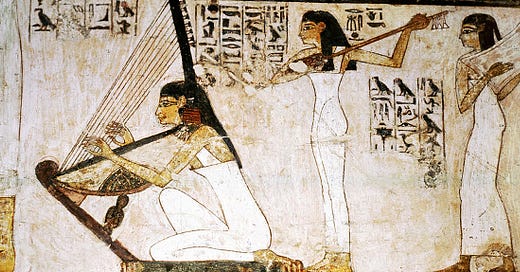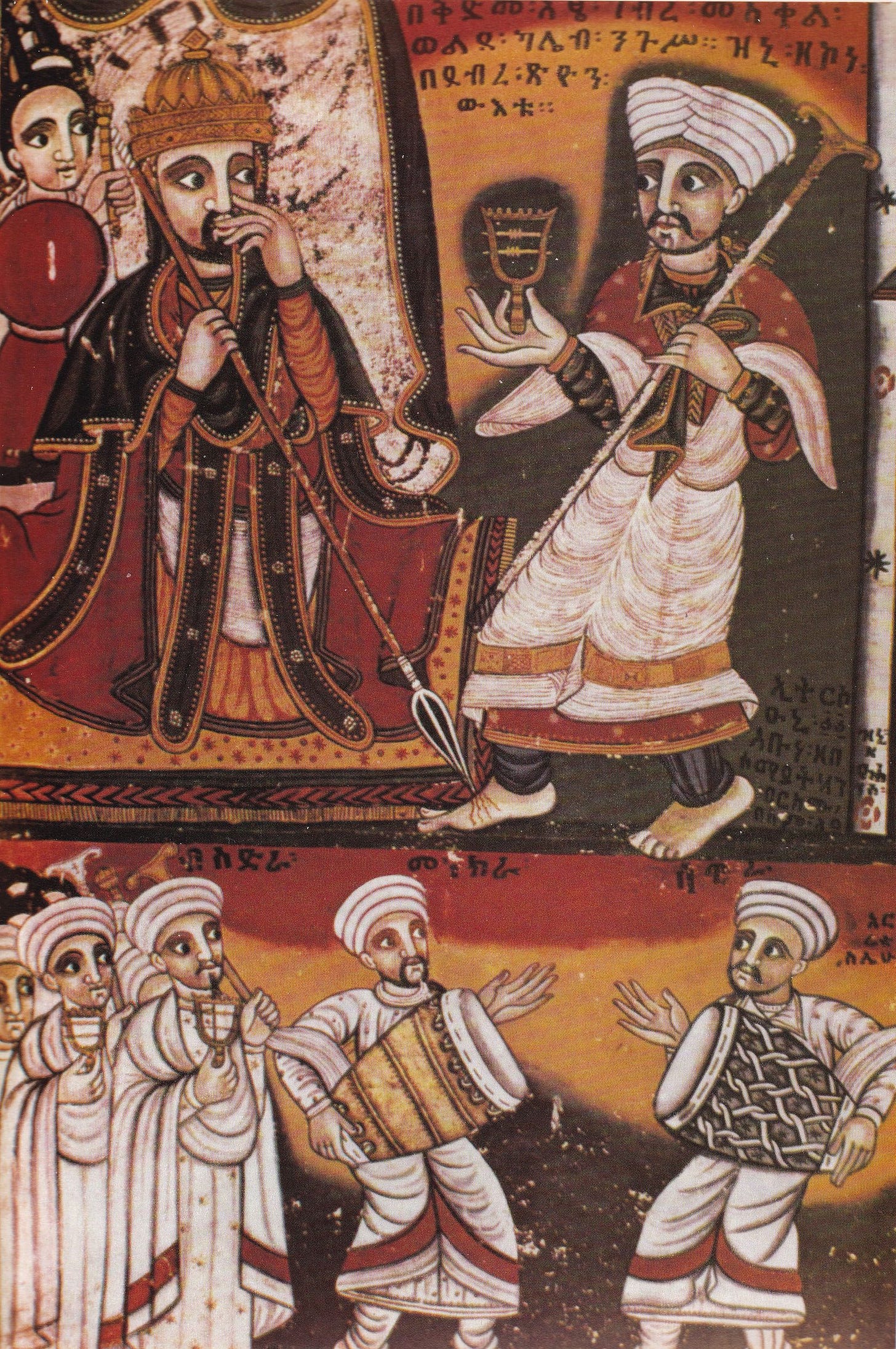Sonic Relics
Today, I got my remaining two wisdom teeth out, three years after I got the first two out, a strange and multinational saga that has honestly been absurd. In ancient times, humans needed wisdom teeth to chew through hard meats, nuts, and such. However, with better cooking and cutting techniques, our jaws don’t expand to the same size as they once did—which can apparently be prevented?—meaning that only 2% of American adults grow into old age while still hanging on to those wise chompers. I suppose that small fraction of people must be extremely sage.
Though that anecdote may seem a non-sequitur, it triggered a meditation on antiquity as I thought about what to write as a genre recap today—the dental practices our ancient ancestors did not undergo, the music they heard, a natural progression.
These random genres of last year’s column allowed me to time travel, an experience I’ve always yearned for (all the Magic Treehouse books I voraciously consumed in kindergarten must have planted that seed within me), to global styles that have been echoing for millennia. Reading these taught me the fluidity of music, generationally, as many of these practices have persisted to the present, in both formal and royal channels like dhrupad and inkiranya and in community-based vocal groupings like Lab polyphony and Inuit vocal games. Others are ingenious interpretations by modern musicians drawing from archaeological efforts to suggest what music may have sounded like without any notational knowledge, like Ancient Egyptian music or venturing into our forefathers’ caves in Prehistoric music.
These articles also contain fascinating insights into cultural differences; ancient Rome had particularly divergent views of music’s role in society, as mirrored in its intellectual role in ancient China.
Bask in the hallowed halls of temples, palaces, and forums of yore by checking out some of these genres <3
Where It All Started
Ancient Egyptian Music, Ancient Roman Music, Ancient Greek Music, Armenian Church Music, Inkiranya (Burundi), Yayue (China), Jeong-ak (Korea), Kirtan & Dhrupad (India), Taiko (Japan), Azmari (Ethiopia), Celtic Chant, Lab Polyphony, Inuit Vocal Games, Xẩm (Vietnam)






